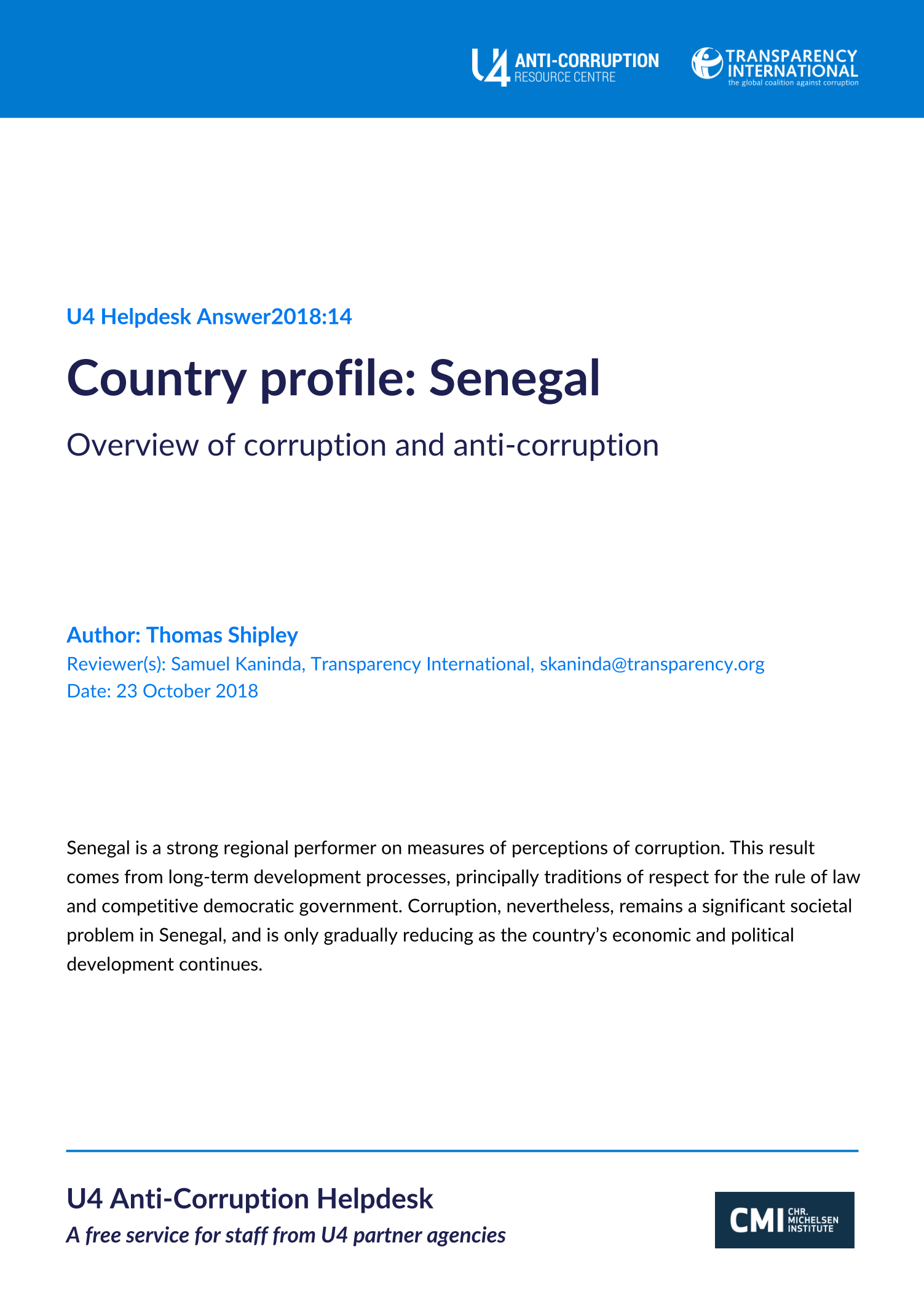Main points
- Senegal has registered gains on the CPI since 2012. The change in political regime and initial optimism around the anti-corruption campaign launched are the most important explanatory factors for the recent improvement in public perceptions.
- Measures taken by the government include the creation of new anti-corruption institutions and sanctioning past abuses. There are, nonetheless, concerns that the scope and depth of the anti-corruption measures have been influenced by political considerations. These institutions are at a formative stage.
- Practices of clientelism and grand corruption are persistent, although administrative corruption is believed to be substantively lower than in other countries in the region. Public procurement has been a focus of past abuses and remains a major risk area.


